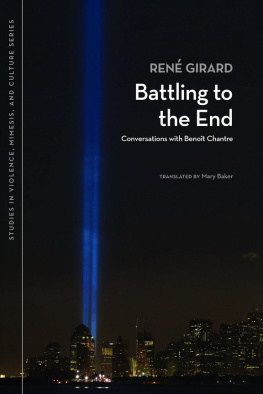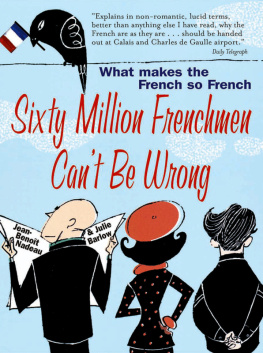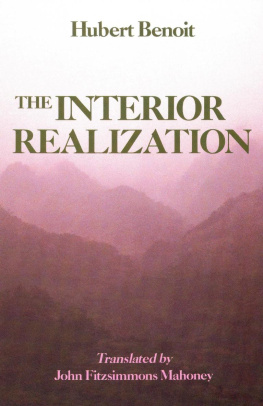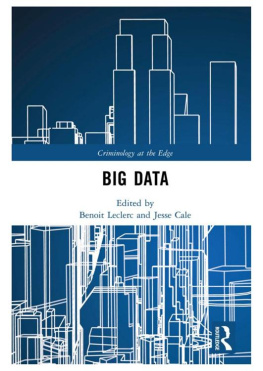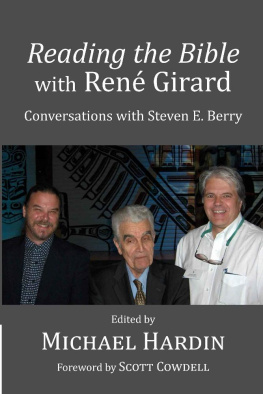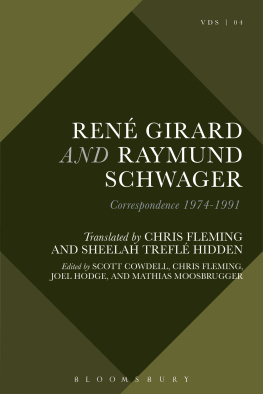Rene Girard Benoît Chantre - Battling to the End: Conversations with Benoît Chantre
Here you can read online Rene Girard Benoît Chantre - Battling to the End: Conversations with Benoît Chantre full text of the book (entire story) in english for free. Download pdf and epub, get meaning, cover and reviews about this ebook. year: 0, genre: Religion. Description of the work, (preface) as well as reviews are available. Best literature library LitArk.com created for fans of good reading and offers a wide selection of genres:
Romance novel
Science fiction
Adventure
Detective
Science
History
Home and family
Prose
Art
Politics
Computer
Non-fiction
Religion
Business
Children
Humor
Choose a favorite category and find really read worthwhile books. Enjoy immersion in the world of imagination, feel the emotions of the characters or learn something new for yourself, make an fascinating discovery.
- Book:Battling to the End: Conversations with Benoît Chantre
- Author:
- Genre:
- Year:0
- Rating:4 / 5
- Favourites:Add to favourites
- Your mark:
- 80
- 1
- 2
- 3
- 4
- 5
Battling to the End: Conversations with Benoît Chantre: summary, description and annotation
We offer to read an annotation, description, summary or preface (depends on what the author of the book "Battling to the End: Conversations with Benoît Chantre" wrote himself). If you haven't found the necessary information about the book — write in the comments, we will try to find it.
Battling to the End: Conversations with Benoît Chantre — read online for free the complete book (whole text) full work
Below is the text of the book, divided by pages. System saving the place of the last page read, allows you to conveniently read the book "Battling to the End: Conversations with Benoît Chantre" online for free, without having to search again every time where you left off. Put a bookmark, and you can go to the page where you finished reading at any time.
Font size:
Interval:
Bookmark:

Battling to the End
S TUDIES IN V IOLENCE , M IMESIS, AND C ULTURE S ERIES
SERIES EDITOR
William A. Johnsen
The Studies in Violence, Mimesis, and Culture Series examines issues related to the nexus of violence and religion in the genesis and maintenance of culture. It furthers the agenda of the Colloquium on Violence and Religion, an international association that draws inspiration from Ren Girards mimetic hypothesis on the relationship between violence and religion, elaborated in a stunning series of books he has written over the last forty years. Readers interested in this area of research can also look to the associations journal, Contagion: Journal of Violence, Mimesis, and Culture.
EDITORIAL BOARD
Rebecca Adams, Independent Scholar Mark Anspach, cole Polytechnique, Paris Ann Astell, University of Notre Dame Cesreo Bandera, University of North Carolina Maria Stella Barberi, Universit di Messina Diana Culbertson, Kent State University Paul Dumouchel, Ritsumeikan University Jean-Pierre Dupuy, Stanford University, cole Polytechnique Giuseppe Fornari, Universit degli studi di Bergamo Eric Gans, University of California, Los Angeles Sandor Goodhardt, Purdue University Robert Hamerton-Kelly, Stanford University Hans Jensen, Aarhus University, Denmark Mark Juergensmeyer, University of California, Santa Barbara | Cheryl Kirk-Duggan, Shaw Divinity School Michael Kirwan, SJ, Heythrop College, University of London Paisley Livingston, Lingnan University, Hong Kong Charles Mabee, Ecumenical Theological Seminary, Detroit Jzef Niewiadomski, Universitt Innsbruck Wolfgang Palaver, Universitt Innsbruck Martha Reineke, University of Northern Iowa Tobin Siebers, University of Michigan Thee Smith, Emory University Mark Wallace, Swarthmore College Eugene Webb, University of Washington |
Battling to the End
Conversations with Benot Chantre

Michigan State University Press East Lansing
Copyright 2010 by Michigan State University
Achever Clausewitz Editions Carnets Nord, 2007
 The paper used in this publication meets the minimum requirements of ANSI/NISO Z39.48-1992 (R 1997) (Permanence of Paper).
The paper used in this publication meets the minimum requirements of ANSI/NISO Z39.48-1992 (R 1997) (Permanence of Paper).
Michigan State University Press
East Lansing, Michigan 48823-5245
Printed and bound in the United States of America.
16 15 14 13 12 11 10 1 2 3 4 5 6 7 8 9 10
LIBRARY OF CONGRESS CATALOGING-IN-PUBLICATION DATA
Girard, Ren, 1923
[Achever Clausewitz. English]
Battling to the end / Ren Girard.
p. cm. (Studies in violence, mimesis, and culture series)
Translation of Achever Clausewitz, published: Paris : Carnets nord, 2007.
Based on discussions with Benot Chantre.
Includes index.
ISBN 978-0-87013-877-5 (pbk. : alk. paper)
1. War. 2. Clausewitz, Carl von, 17801831. 3. Strategy.
4. Military art and science. 5. Girard, Ren, 1923Interviews.I. Chantre, Benot. II. Title.
U21.2.G52513 2010
355.02dc22
2009031985
Book and cover design by Sharp Des!gns, Inc., Lansing, MI
Cover photo is from istock.com.
 Michigan State University Press is a member of the Green Press Initiative and is committed to developing and encouraging ecologically responsible publishing practices. For more information about the Green Press Initiative and the use of recycled paper in book publishing, please visit www.greenpressinitiative.org.
Michigan State University Press is a member of the Green Press Initiative and is committed to developing and encouraging ecologically responsible publishing practices. For more information about the Green Press Initiative and the use of recycled paper in book publishing, please visit www.greenpressinitiative.org.
Visit Michigan State University Press on the World Wide Web at:
www.msupress.msu.edu
Contents
Mary Baker is the primary translator of Achever Clausewitz . She captured beautifully the rapid back and forth of ideas between Ren Girard and Benot Chantre, producing the primary manuscript. Andrew McKenna, Professor of French at Loyola University, was a graduate student of Girard at Johns Hopkins University in the sixties. He has been the publishers go-to person for reviewing manuscripts on mimetic theory for the last 30 years; he is also the former editor of Contagion (19962006). No one (except perhaps Martha Girard herself) has listened longer and more carefully to Girard work through the mimetic theory in both English and French. McKenna was invaluable in suggesting how sentences in Achever Clausewitz would sound if Girard wrote them in English. I made the final decisions on when to adopt McKennas suggestions and, because Mary Baker lives in Japan, I provided the standard English translations for the references.
William A. Johnsen
Series Editor
Studies in Violence, Mimesis, and Culture Series
This is a peculiar kind of book. It claims to be a study of Germany and French-German relations over the last two centuries. At the same time, it says things that have never before been said with the violence and clarity they require. Its subject is the possibility of an end to Europe, the Western world and the world as a whole. Today, this possibility has become real. This is an apocalyptic book.
Until now, my entire work has been presented as a discussion of archaic religion through comparative anthropology. Its goal was to shed light on what is known as the process of hominization, the fascinating passage from animality to humanity that occurred thousands of years ago. My hypothesis is mimetic: because humans imitate one another more than animals, they have had to find a means of dealing with contagious similarity, which could lead to the pure and simple disappearance of their society. The mechanism that reintroduces difference into a situation in which everyone has come to resemble everyone else is sacrifice. Humanity results from sacrifice; we are thus the children of religion. What I call after Freud the founding murder, in other words, the immolation of a sacrificial victim that is both guilty of disorder and able to restore order, is constantly re-enacted in the rituals at the origin of our institutions. Since the dawn of humanity, millions of innocent victims have been killed in this way in order to enable their fellow humans to live together, or at least not to destroy one another. This is the implacable logic of the sacred, which myths dissimulate less and less as humans become increasingly self-aware. The decisive point in this evolution is Christian revelation, a kind of divine expiation in which God through his Son could be seen as asking for forgiveness from humans for having revealed the mechanisms of their violence so late. Rituals had slowly educated them; from then on, humans had to do without.
Christianity demystifies religion. Demystification, which is good in the absolute, has proven bad in the relative, for we were not prepared to shoulder its consequences. We are not Christian enough. The paradox can be put in a different way: Christianity is the only religion that has foreseen its own failure. This prescience is known as the apocalypse. Indeed, it is in the apocalyptic texts that the word of God is most forceful, repudiating mistakes that are entirely the fault of humans, who are less and less inclined to acknowledge the mechanisms of their violence. The longer we persist in our error, the stronger Gods voice will emerge from the devastation. This is why no one wants to read the apocalyptic texts that abound in the Synoptic Gospels and Pauline Epistles. This is also why no one wants to recognize that these texts rise up before us because we have disregarded Revelation. Once in our history the truth about the identity of all humans was spoken, and no one wanted to hear it; instead we hang ever more frantically onto our false differences.
Font size:
Interval:
Bookmark:
Similar books «Battling to the End: Conversations with Benoît Chantre»
Look at similar books to Battling to the End: Conversations with Benoît Chantre. We have selected literature similar in name and meaning in the hope of providing readers with more options to find new, interesting, not yet read works.
Discussion, reviews of the book Battling to the End: Conversations with Benoît Chantre and just readers' own opinions. Leave your comments, write what you think about the work, its meaning or the main characters. Specify what exactly you liked and what you didn't like, and why you think so.

